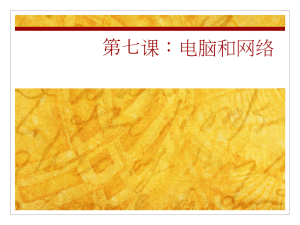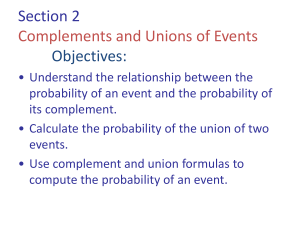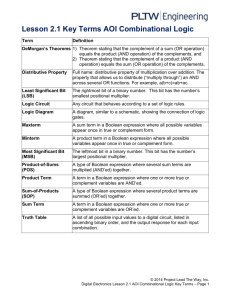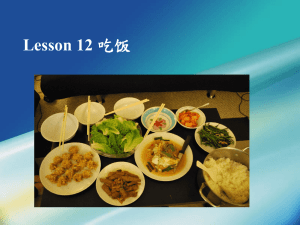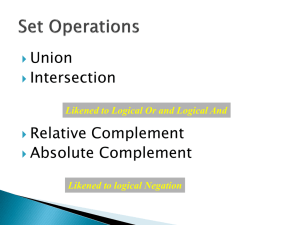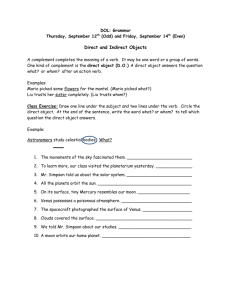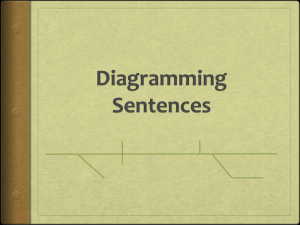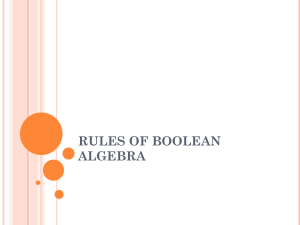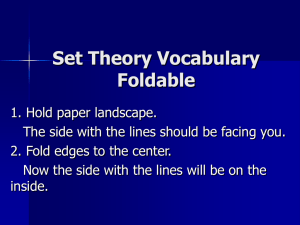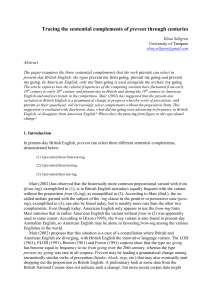Planning - Grammar Models for English 329
advertisement
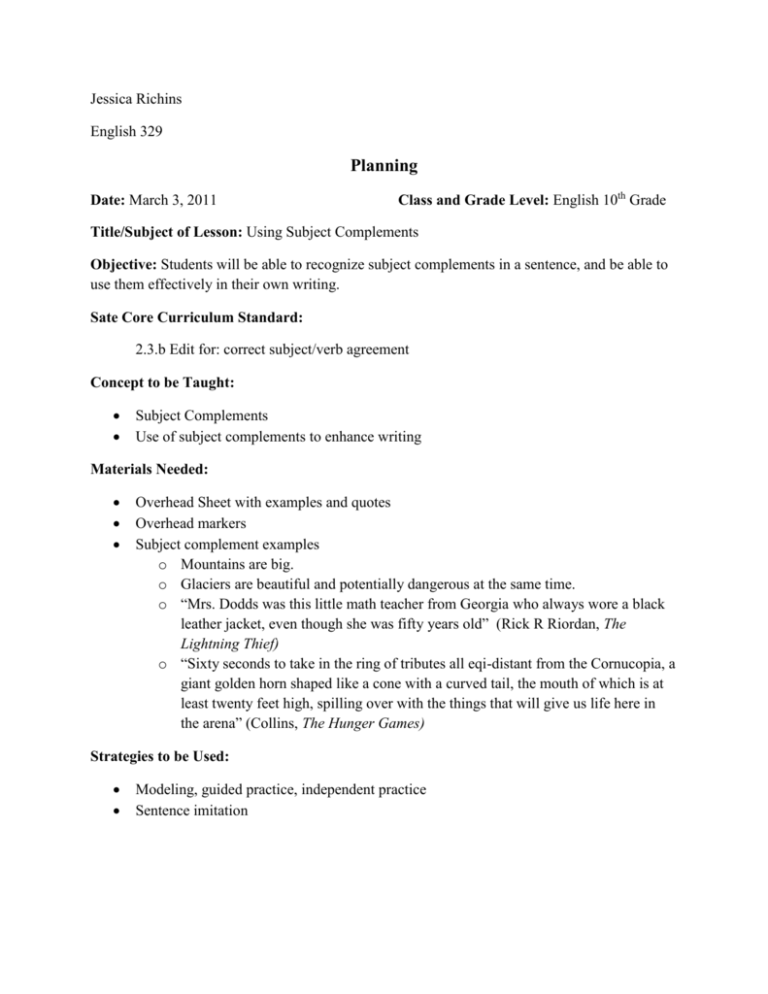
Jessica Richins English 329 Planning Date: March 3, 2011 Class and Grade Level: English 10th Grade Title/Subject of Lesson: Using Subject Complements Objective: Students will be able to recognize subject complements in a sentence, and be able to use them effectively in their own writing. Sate Core Curriculum Standard: 2.3.b Edit for: correct subject/verb agreement Concept to be Taught: Subject Complements Use of subject complements to enhance writing Materials Needed: Overhead Sheet with examples and quotes Overhead markers Subject complement examples o Mountains are big. o Glaciers are beautiful and potentially dangerous at the same time. o “Mrs. Dodds was this little math teacher from Georgia who always wore a black leather jacket, even though she was fifty years old” (Rick R Riordan, The Lightning Thief) o “Sixty seconds to take in the ring of tributes all eqi-distant from the Cornucopia, a giant golden horn shaped like a cone with a curved tail, the mouth of which is at least twenty feet high, spilling over with the things that will give us life here in the arena” (Collins, The Hunger Games) Strategies to be Used: Modeling, guided practice, independent practice Sentence imitation Performing Announcements: None Continuation of Previous Lesson: While we’re reading Maniac Magee, each of you continues to write your personal “Tall Tale.” Part of writing a tall tale is being able to add description into our tales, especially about the subject of our tales. We are going to look at a grammar feature that can be used to enhance your writing. Lesson Presentation: A. Getting Started: (anticipatory set) I am going to start by explaining what a subject complement is: o Show the overhead with the definition o The simplest way to define subject complements is that they “rename or describe the subjects of sentences” (Douglas et. al., 73). o The subject complement is typically an adjective or a noun that follows a linking verb, such as: “be, becoming, feel, look, seem, smell, sound, taste, etc.” (Green et. al., 268). o The subject complement in a sentence helps the linking verb finish the thought of the sentence, and adds detail to the subject. o In simpler terms the subject complement is an adjective or noun that complements the subject of the story, and can either be one word or a phrase. (Modeling) Lets look at a simple example of a subject complement in a sentence: (show overhead) o Mountains are big. What is the subject here and what is the subject complement? Lets do another simple example before we move onto examples from authors o Glaciers are beautiful and potentially dangerous at the same time. This sentence has two subject complements in it. Can anyone tell me what they are? So subject completes are the adjectives or nouns that are describing the subject of the sentence. Have students do sentence imitation, modeling the Glacier sentence. Use the example of a tree, mountain, some sort of feature of nature to use for imitation. Lets look at subject complements “in the wild” o “Sixty seconds to take in the ring of tributes all eqi-distant from the Cornucopia, a giant golden horn shaped like a cone with a curved tail, the mouth of which is at least twenty feet high, spilling over with the things that will give us life here in the arena” (Collins, The Hunger Games) Can anyone tell me where the subject complement is? Notice that in this example the subject complement is a phrase. Have students use sentence imitation for the description of the cornucopia with use of an appositive. o “Mrs. Dodds was this little math teacher from Georgia who always wore a black leather jacket, even though she was fifty years old” (Rick Riordan, The Lightning Thief) Where is the subject complement in this sentence? What does the subject complement do for the sentence, or how does it help the subject of the sentence? B. Directing the Learning: (learning activities) (Modeling/Sentence Imitation) o Now I’m going to show how you use subject complements in a sentence. I will imitate The Lightning Thief sentence because it’s so “meaty.” o Show the overhead with my example: The house was an imposing structure that casts shadows all the way down the block. (Guided Practice/Sentence Imitation) o Now you try imitating Rick Riordan’s sentence using the model. Write a sentence on your own paper. Subject + linking verb + subject complement. o Share student examples and talk about how the subject complement works in the sentence. C. Bringing the Lesson to a conclusion: (Independent Practice/Accountability) o Now that we’ve practiced subject complements together, I want you to come up with a sentence using subject complements on your own. Assignment: Take out the tall tale that you are working on, and find a few places to add in subject complements. Find places in your tales that could be enhanced by adding in description of the subject of the sentence. You’ll be surprised to see what a little detail will do for your writing. Evaluation: How successful was my lesson? Did it have an application to my student’s writing? What can I change to make it more successful next time? Should I change the order of anything in my lesson to make it flow better? Overhead Definition: subject complement is an adjective or noun that follows a linking verb and complements the subject of the story. Some linking verbs: be, becoming, feel, was, look, seem, smell, sound, taste, etc. Subject + linking verb + subject complement. Mountains are big. Glaciers are beautiful and potentially dangerous at the same time. Overhead “Sixty seconds to take in the ring of tributes all eqi-distant from the Cornucopia, a giant golden horn shaped like a cone with a curved tail, the mouth of which is at least twenty feet high, spilling over with the things that will give us life here in the arena.” (Collins, The Hunger Games) “Mrs. Dodds was this little math teacher from Georgia who always wore a black leather jacket, even though she was fifty years old.” (Rick R Riordan, The Lightning Thief) The house was an imposing structure that casts shadows all the way down the block. Your turn: The willow tree +liking verb + subject complement.
